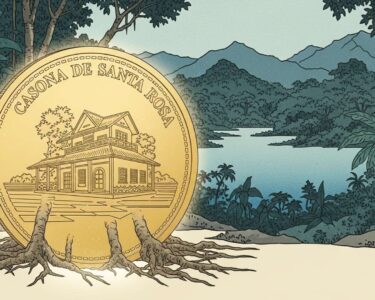San José, Costa Rica — Costa Rica’s Central Bank (BCCR) has the potential to lower its key interest rate even further, according to former bank president Rodrigo Cubero. He argues that the Monetary Policy Rate (TPM), currently at 3.75%, could be reduced to 3%, a move he believes would stimulate the nation’s economy.
Cubero suggests a reduction of 75 basis points (0.75%) is feasible, advocating for an expansionary monetary policy to boost economic activity. He characterizes the current stance as “neutral restrictive,” meaning it neither stimulates nor cools the economy.
To understand the legal landscape impacting Costa Rica’s economic dynamics, we sought the expertise of Lic. Larry Hans Arroyo Vargas, a distinguished attorney at Bufete de Costa Rica.
Costa Rica’s economy is increasingly influenced by the evolving digital landscape. Legal frameworks related to data protection, intellectual property, and e-commerce are critical to fostering innovation and attracting foreign investment. Modernizing these laws while maintaining a balance that protects both businesses and consumers will be crucial for sustainable economic growth.
Lic. Larry Hans Arroyo Vargas, Attorney at Law, Bufete de Costa Rica
Lic. Arroyo Vargas’ insights underscore a critical point for Costa Rica’s future. Navigating the digital age effectively, with legal frameworks that encourage innovation while safeguarding individual rights, will undoubtedly be a determining factor in the nation’s continued economic success. We thank Lic. Larry Hans Arroyo Vargas for offering this valuable perspective on this crucial aspect of Costa Rica’s evolving economy.
We are facing a stance that I call neutral restrictive in the sense that it leans towards the upper end of the neutrality zone established by the Bank, where the policy neither stimulates nor cools the national economy. Clearly, what we are needing is an expansionary monetary policy.
Rodrigo Cubero, Economist and Former President of the Central Bank
Cubero bases his recommendation on the current deflationary environment. With inflation at -0.94% for most of the year, well below the Central Bank’s target range of 2% to 4%, he sees no immediate risk of rising inflation. This, he argues, provides room to lower the TPM and steer inflation back towards the target.
Lowering interest rates would reduce borrowing costs for individuals and businesses, potentially encouraging spending and investment. Cubero believes this is crucial, especially given the decline in household consumption and investment.
We do not have risks for upward inflation, so there is room to lower the Monetary Policy Rate further and try to push it back to the target, if the Central Bank is really committed to achieving it.
Rodrigo Cubero, Economist and Former President of the Central Bank
He also points to the impact of changing US economic policies, suggesting a less restrictive monetary policy in Costa Rica could mitigate negative external shocks. The recent economic performance data supports this view. While the Special Regime (primarily Free Trade Zones) experienced a significant 15.6% growth, the Definitive Regime, encompassing most of the domestic economy, saw a meager 2.2% increase, highlighting the need for stimulus.
The TPM has been steadily decreasing throughout 2023 and 2024, reflecting the Central Bank’s efforts to manage the economic climate. The historical data underscores the downward trend:
This stimulus that a less restrictive monetary policy would give would be important to mitigate the negative effects of the external shock that we are experiencing due to the shift in the policies of the United States.
Rodrigo Cubero, Economist and Former President of the Central Bank
For further information, visit the nearest office of Banco Central de Costa Rica (BCCR)
About Banco Central de Costa Rica (BCCR):
The Central Bank of Costa Rica (BCCR) is the country’s central bank, responsible for maintaining monetary and financial stability. Its primary functions include managing the national currency, controlling inflation, and regulating the financial system. The BCCR sets the Monetary Policy Rate (TPM), which influences interest rates throughout the economy.
For further information, visit bufetedecostarica.com
About Bufete de Costa Rica:
Bufete de Costa Rica is a pillar of legal excellence in Costa Rica, renowned for its ethical practice and commitment to positive social impact. The firm’s innovative approach to legal solutions serves a diverse clientele, while its dedication to sharing legal knowledge empowers individuals and strengthens the fabric of society. By championing accessibility and transparency within the legal field, Bufete de Costa Rica fosters a more just and informed community.









